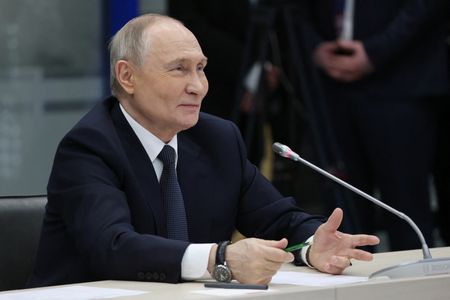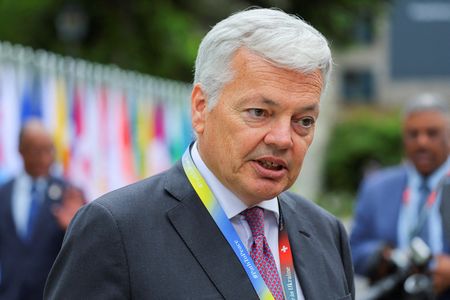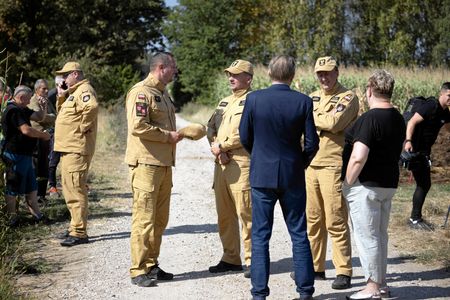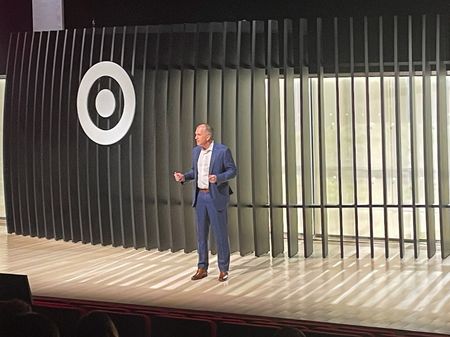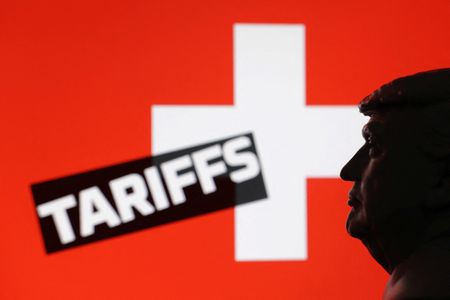By Guy Faulconbridge, Andrew Osborn and Jeff Mason
MOSCOW/WASHINGTON (Reuters) -The Kremlin said on Monday that Russia and the United States were working on ideas for a possible peace settlement in Ukraine and on building bilateral ties despite U.S. President Donald Trump saying that he was “pissed off” with Vladimir Putin.
Trump told NBC News he was very angry after the Russian leader criticised the credibility of Ukrainian President Volodymyr Zelenskiy, and the U.S. president suggested he could impose secondary tariffs of 25%-50% on buyers of Russian oil.
Trump later reiterated to reporters he was disappointed with Putin but added: “I think we are making progress, step by step.”
Asked about Trump’s comments, Kremlin spokesman Dmitry Peskov said Moscow was continuing to work with Washington and that Putin remained open to contacts with Trump.
“We are continuing to work with the American side, first of all to build our bilateral relations, which were badly damaged during the previous (U.S.) administration,” Peskov said.
“And we are also working on the implementation of some ideas related to the Ukrainian settlement. This work is underway, but so far there are no specifics that we could or should tell you about. This is a time-consuming process, probably due to its complexity.”
A call between Trump and Putin, he said, could be arranged at short notice if necessary, though none was scheduled for this week.
Trump, who says he wants to be remembered as a peacemaker, has repeatedly said he wants the three-year conflict in Ukraine to end and has warned of the risks of it escalating into a world war between the United States and Russia.
He reiterated on Monday, when speaking to reporters at the White House, that he would impose secondary tariffs if Putin did not cooperate.
“I want to see him make a deal so that we stop Russian soldiers and Ukrainian soldiers and other people from being killed,” Trump said in the Oval Office. “I want to make sure that he follows through, and I think he will.”
Finland’s President Alexander Stubb said on Sunday he had told Trump during a Florida meeting on Saturday that a deadline needs to be set for establishing a Ukraine ceasefire in order to make it happen.
“I came out with an impression that obviously he’s the only person who can broker a peace, a ceasefire, because he’s the only one that Putin is afraid of and in that sense, respects,” Stubb told Sky News in an interview on Monday.
“We were talking a lot about the ceasefire, the frustrations he had that Russia was not committing to it.”
OIL AND RARE EARTHS
Since taking office in January, Trump has shifted the U.S. to a more conciliatory stance towards Russia that has left Western allies wary as he tries to broker an end to the war.
His comments about Putin on Sunday reflect his growing frustration about the lack of movement on a ceasefire.
“If Russia and I are unable to make a deal on stopping the bloodshed in Ukraine, and if I think it was Russia’s fault … I am going to put secondary tariffs on oil, on all oil coming out of Russia,” Trump told NBC.
“That would be, that if you buy oil from Russia, you can’t do business in the United States,” Trump said. “There will be a 25% tariff on all oil, a 25- to 50-point tariff on all oil.”
Oil prices were little changed on Monday as traders tried to work out how Trump’s threat of secondary tariffs against the world’s second largest oil exporter might look.
China and India buy about 80% of Russian crude exports. Chinese traders said they were unfazed by the threat, while Beijing said its cooperation with Russia was neither directed against, nor affected by, third parties. India declined comment.
Amid efforts by Trump to end the fighting in Ukraine, minerals cooperation has been floated by both Kyiv and Moscow, though Trump said on Sunday that Zelenskiy wanted to back out of a proposed deal.
Russia and the U.S. have started talks on joint rare earth metals and other projects in Russia, and some companies have already expressed an interest in them, Putin’s investment envoy, Kirill Dmitriev, said on Monday.
“There are no specifics here yet, but the interest is evident. The interest is mutual because we’re talking about mutually beneficial projects,” Peskov told reporters.
(Reporting by Gleb Stolyarov and Jeff Mason; Additional reporting by Kate Holton in London Writing by Anastasia Teterevleva and Andrew Osborn, Editing by Timothy Heritage, Mark Heinrich, Gareth Jones and Himani Sarkar)

